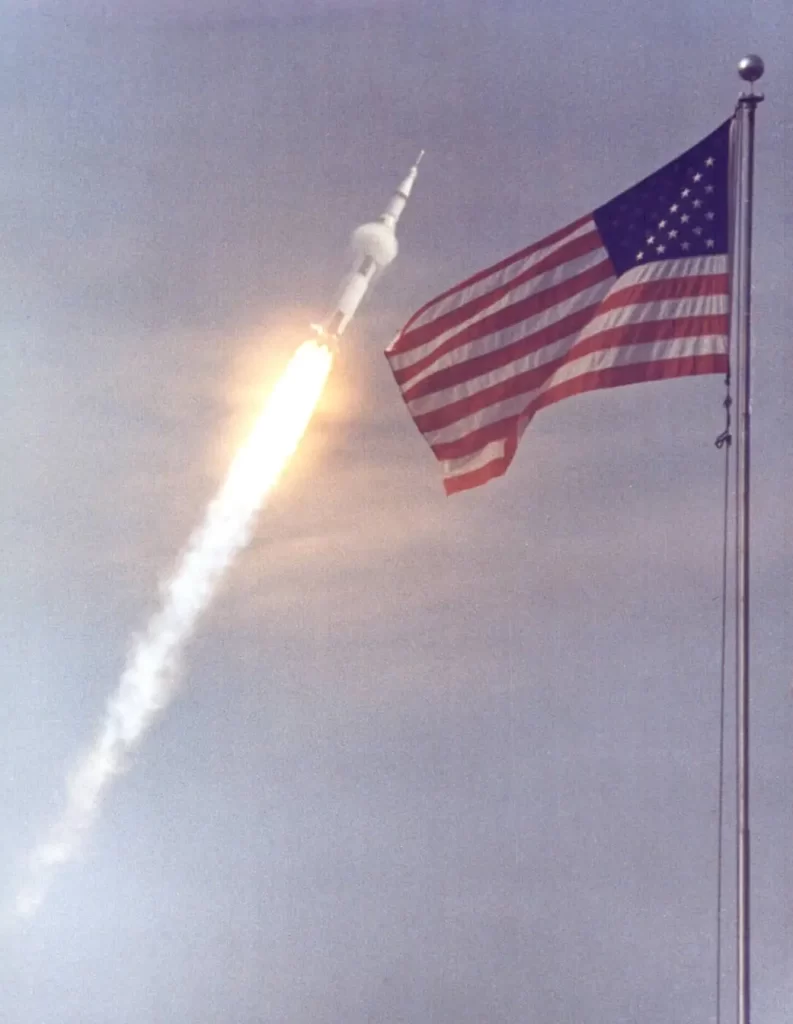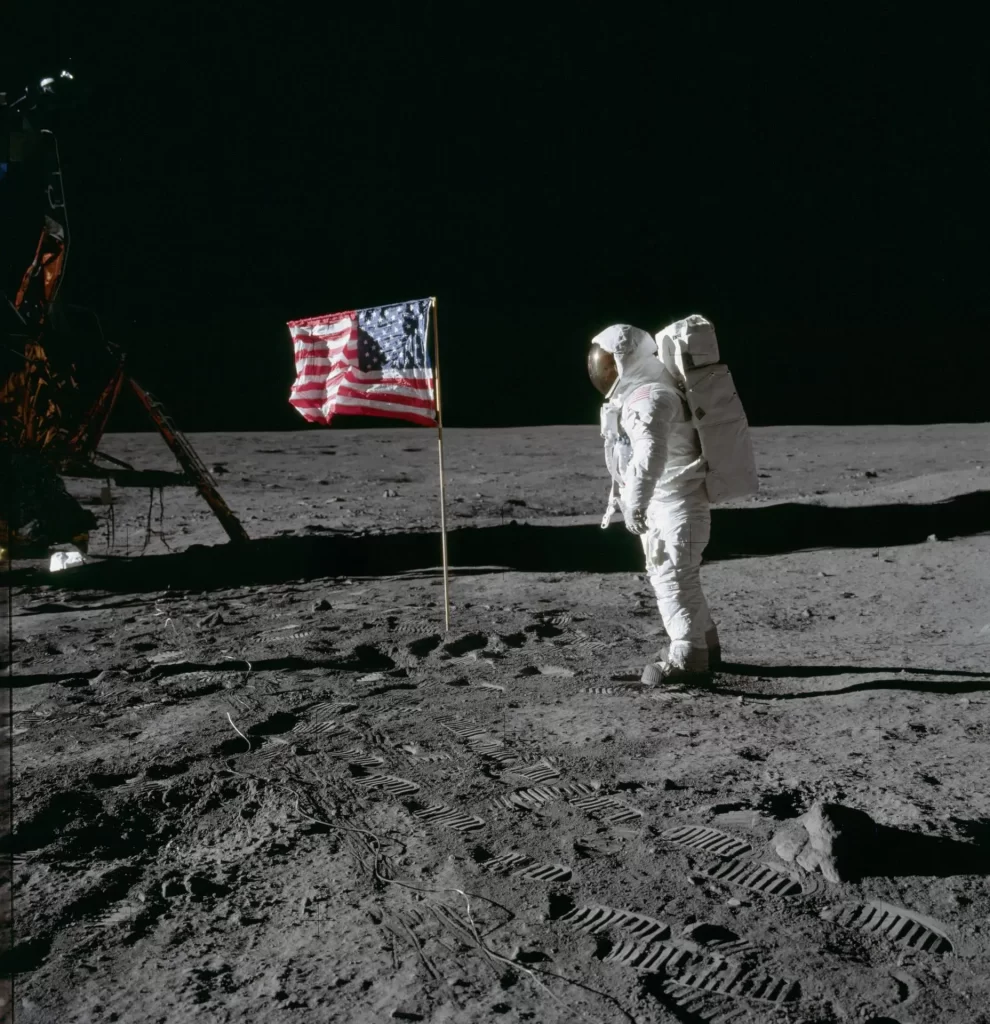
This post and podcast are not, in any way, shape or form, affiliated with, nor endorsed by, NASA. We are not employed by NASA. We’ve just been wowed by the ways they’ve made “science fiction” a reality in our lifetime.
“To me, it’s always the human story,” says NASA Chief Historian Dr. Brian Odom.
He’s discussing the Apollo 11 Moon landing, which celebrated its 55th anniversary in July, 2024.
And the impact of the program, which was no less than revolutionary to education and the way the world reimagined the future.
Today, the lessons of the Apollo program still resonate, as NASA’s Artemis program prepares to return humans to the Moon–and ultimately, to create a lunar outpost which may allow travel to Mars.
Brian talked about the circumstances which led to the Apollo Moon missions, the Apollo 11 launch h on July 16, 1969, and the lessons of the lunar landing and exploration which still resonate as NASA plans future space travel.
(Like to know more about the Apollo 11 Moon mission? Here’s the link to NASA’s history archive!)

On this edition of Over Coffee® we cover:
- How Brian first discovered his passion for history, and space science history in particular;
- A closer look at some of the key factors that made Apollo 11 a success;
- Some of the technological advances behind the scenes, that were revolutionary for their day;
- How the Southern states were involved in these technological breakthroughs;
- Some of the social and cultural changes that resulted from the Apollo project, particularly in education;
- How educators today can make the story of Apollo 11 relatable;
- Some of Brian’s favorite stories about the Apollo 11 mission;
- A highly-relevant lesson for preparations for the Artemis missions, from Apollo 11;
- Mistakes, during the Apollo missions, from which the teams learned;
- Some of the educational guidelines for students who may be preparing to be future Artemis team members;
- How art was involved, in the Apollo program!;
- The impact Brian would like the Artemis program to have on society;
- A closer look at NASA publications and resources, including the two books Brian has edited on NASA and the history of civil rights and the American South.
